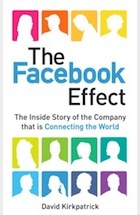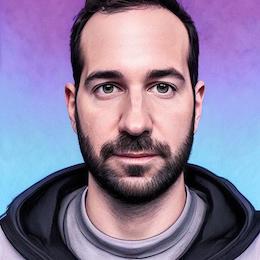
I was always more impressed by Google, because of its contribution to technology and company culture. So I read books about Google like “The Google Story” and “The Search”. Before watching the Facebook movie, I read old articles dating back to 2004 about Zuckerberg in Harvard’s student magazine, The Crimson. It was cool to see internet history. Watching “Social Network” helped me realize that there were many interesting details about the early days of Facebook as well. I became more intrigued after watching the movie, so I decided to read “The Facebook Effect”. The book covers different aspects of the early days compared to the movie, and moves on to the later stages of the company as well. It contains first-hand information, with many names and details, which makes it real and valuable. It made me as if I was part of the early days, and was a great motivational read. I even learned a few lessons from this book. Since the early days, they made very correct strategic moves that determined the success of the company:
- They started at Harvard, moved to Ivy League Schools, then to Colleges, then to High Schools, to Workplaces and to Everyone.
- College is where people’s social networks are densest and they socialize more vigorously than at any other time in their lives.
- They embarked a surround strategy. If another social network had begun to take root at a certain school, Facebook would open not only there but at as many other campuses as possible in the immediate vicinity.
- When the number on the waiting list passed 20 percent of the student body, Facebook would turn that school on.
- College students were a precious demographic or marketers. Its there that critical lifelong buying habits are formed - your first car, bank account, credit card
- The college-issued .edu email addresses had ensured that people were who they said they were
And here are some interesting facts:
- First employee was Taner Halicioglu, a Turkish guy who worked at Ebay. Now he’s the Lead Reliability Engineer at Blizzard
- Mark wanted to build the product out and focus on revenue as late as possible. We thought we would make more revenue in the long run if we didn’t compromise the site. We almost shouldn’t be making money off of it if it isn’t adding value
- The soft drink ad agency offered to pay $1 million for a banner ad that would turn Facebook’s entire homepage green for one day. Zuckerberg didn’t even consider taking the money
- the trick isn’t adding stuff, it’s taking away
- The very fact that the meaning of a poke was so indeterminate was one of its appeals
- Zuckerberg says “My life plan basically is I’ll prototype a bunch of these apps and then try and get people to run them for me.”
- What made Facebook valuable was engagement, 65% of users were returning to the site daily, %90 came back at least once a week
I enjoyed the book a lot, and recommend it to anyone interested in startups.
